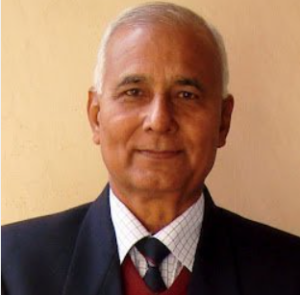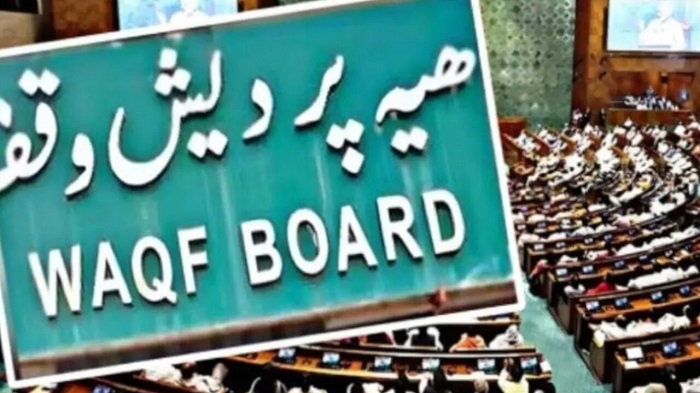SR Darapuri, National President, All India Peoples Front

(Asian independent) The Waqf (Amendment) Bill, 2025, passed by the Indian Parliament in April 2025, aims to reform the management of Waqf properties—land and assets dedicated by Muslims for religious or charitable purposes under Islamic law. Whether it will benefit Indian Muslims is a contentious question, with opinions sharply divided between the government’s claims and the concerns of critics, including Muslim communities and opposition leaders. Below, I will break down the potential benefits, drawbacks, and broader implications based on the bill’s provisions and the ongoing debate, without taking a definitive stance, as the outcome depends on implementation and perspective.
Potential Benefits for Indian Muslims
The government, led by the Bharatiya Janata Party (BJP), argues that the bill will modernize and streamline Waqf administration, potentially benefiting poorer sections of the Muslim community. Key provisions and their intended upsides include:
– Transparency and Accountability: The bill mandates digital registration of Waqf properties via a centralized portal within six months, aiming to curb mismanagement and corruption. With Waqf boards controlling an estimated 870,000 properties across 940,000 acres (valued at over ₹1 lakh crore), better oversight could ensure these assets serve their intended charitable purposes—like funding mosques, schools, or orphanages—rather than being siphoned off by vested interests.
– Inclusion of Marginalized Groups: It requires representation of Muslim women (at least two on the Central Waqf Council and State Waqf Boards) and diverse sects (e.g., Shia, Sunni, Bohra), potentially empowering underrepresented voices, such as Pasmanda Muslims (73% of Bihar’s Muslim population, per JD(U) claims). This could redirect resources toward neglected communities.
– Economic and Social Development: By allowing Waqf properties to be used for public welfare projects (e.g., schools, hospitals), as pitched by the BJP, the bill could unlock economic potential for poor Muslims. Union Minister Kiren Rijiju has emphasized that “crores of poor Muslims will benefit,” framing it as a reform for justice, not politics.
– Legal Clarity: The bill applies the Limitation Act, 1963, to Waqf disputes, setting a 12-year limit for adverse possession claims, and shifts final decisions on disputed government properties from Waqf tribunals to district collectors. This could reduce prolonged legal battles, providing clarity for communities relying on these assets.
– Safeguarding Inheritance: It ensures women and heirs receive their inheritance before property is dedicated as Waqf, protecting widows, divorced women, and orphans—a move hailed as progressive by some supporters.
Potential Drawbacks and Concerns
Critics, including Muslim organizations like the All India Muslim Personal Law Board (AIMPLB) and opposition parties, argue that the bill undermines Muslim autonomy and could harm the community. Key concerns include:
– Loss of Religious Autonomy: The inclusion of non-Muslims (e.g., two members on Waqf boards and councils) and the removal of the “Waqf by user” provision (which recognized properties based on long-term religious use) are seen as encroachments on Muslim self-governance, potentially violating Article 26 of the Constitution (freedom to manage religious affairs). Critics ask why similar rules do not apply to Hindu temple trusts.
– Risk to Historical Properties: Many Waqf properties—mosques, dargahs, graveyards—lack formal documentation due to centuries-old oral dedications. Requiring valid deeds and allowing government officials to adjudicate disputes could lead to the loss of such sites, especially if claimed by the state or encroachers. AIMIM leader Asaduddin Owaisi has warned of Muslims losing graveyards and shrines.
– Government Overreach: Shifting authority from Waqf tribunals (whose decisions were final) to district collectors and High Courts, and mandating only “practicing Muslims of five years” to dedicate Waqf, is viewed as a power grab by the Modi government. Muslim leaders allege it is a step toward marginalizing the community, aligning with broader accusations of anti-Muslim policies since 2014.
– Potential for Dispossession: The bill states that government properties misclassified as Waqf will revert to the state. Critics fear this could be exploited to seize valuable land, especially amid rising Hindu nationalist claims on Muslim sites (e.g., mosque-temple disputes in Varanasi or Mathura).
– Community Division: While inclusivity is a stated goal, some argue that appointing non-Muslims and altering board compositions could sow distrust, weakening the communal solidarity Waqf properties traditionally foster.
Broader Implications
The bill’s impact hinges on execution. If implemented as promised—enhancing transparency and welfare—it could benefit poorer Muslims by redirecting Waqf resources effectively. Data from the Sachar Committee (2006) highlighted how mismanaged Waqf properties fail to uplift the community, which lags in education and employment despite comprising 14% of India’s population. However, if it becomes a tool for state control or property disputes, it risks alienating Muslims further, reinforcing perceptions of discrimination under a Hindu nationalist government.
Muslim organizations like Jamiat Ulama-e-Hind see it as an attack on their rights, while the Congress calls it a “land grab.” Conversely, BJP allies like the Telugu Desam Party (TDP) support it with caveats (e.g., leaving non-Muslim representation to states), suggesting a middle ground. Public sentiment, as reflected in protests and parliamentary debates, remains polarized—some Muslims welcome reform, others see a threat.
Conclusion
Will it benefit Indian Muslims? It could, if it delivers on transparency and development without compromising religious autonomy—potentially uplifting marginalized groups within the community. Yet, the risks of dispossession, bureaucratic overreach, and erosion of trust loom large, especially given historical tensions. The real test lies in how the law is applied, monitored, and contested in courts or on the ground. For now, it is a gamble with high stakes, and Indian Muslims’ experience will likely vary by region, class, and the political climate ahead.









